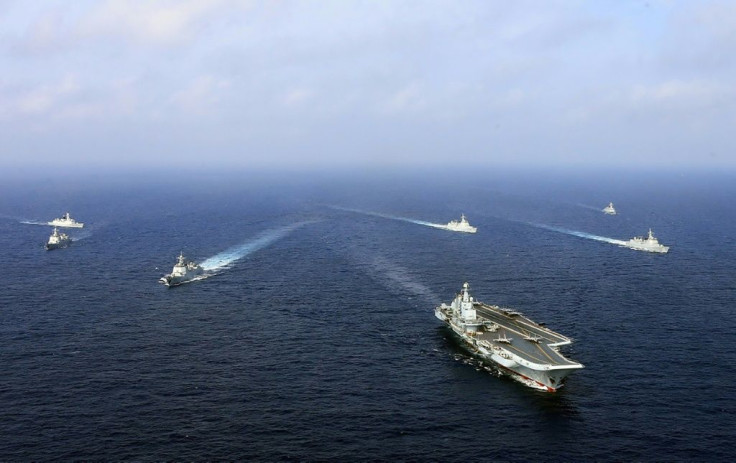China-Philippines War? PH Threatened By Beijing's New South China Sea Laws
KEY POINTS
- The Philippines has filed a diplomatic protest against a new Chinese law
- The Coast Guard law would allow Chinese enforcement to use weapons against foreign vessels or structures
- China has been locked in territorial rivalries against several countries
The Philippines has formally filed a diplomatic protest against a new law enacted by China that authorizes its Coast Guard to fire on foreign vessels and structures in Chinese-claimed reefs.
Philippine Foreign Secretary Teodoro Locsin Jr. on Wednesday said the new Chinese law is a “virtual declaration of war.” He also said that failure to challenge it would be “submission.”
“After reflection, I fired a diplomatic protest,” Locsin wrote in a Twitter post. “While enacting law is a sovereign prerogative, this one—given the area involved or for that matter the open South China Sea—is a verbal threat of war to any country that defies the law; which, if unchallenged, is submission to it.”
After reflection I fired a diplomatic protest. While enacting law is a sovereign prerogative, this one—given the area involved or for that matter the open South China Sea—is a verbal threat of war to any country that defies the law; which, if unchallenged, is submission to it. https://t.co/h2wHNPPH8n
— Teddy Locsin Jr. (@teddyboylocsin) January 27, 2021
Beijing passed the Coast Guard Law on Friday, empowering its forces to use weapons and all necessary measures against foreign individuals or organizations in Chinese-claimed water, armed or unarmed.
The new law also allows the Chinese Coast Guard to demolish foreign structures built by other countries on Chinese-claimed reefs and islands.
Fernando Hicap, chairperson of Pamalakaya, condemned the new law and said it contradicted the freedom recognized in international maritime law. Pamalakaya is an alliance of fisherfolk groups in the Philippines.
“This is a serious threat to Filipino fishers … in our very own territorial waters,” Hicap said.
China has been locked in territorial rivalries with several countries, including Brunei, Malaysia, Vietnam, Taiwan and the Philippines.
In July 2016, the Permanent Court of Arbitration ruled that the Philippines has exclusive sovereign rights over the West Philippine Sea, which China considers to be the South China Sea. The arbitration court also invalidated China’s “nine-dash line.”
“The Tribunal concluded that there was no legal basis for China to claim historic rights to resources within the sea areas falling within the ‘nine-dash line,” the media statement read. “Having found that none of the features claimed by China was capable of generating an exclusive economic zone, the Tribunal found that it could — without delimiting a boundary — declare that certain sea areas are within the exclusive economic zone of the Philippines, because those areas are not overlapped by any possible entitlement of China.”
China did not attend any of the proceedings. The Chinese government also refused to recognize the ruling.

© Copyright IBTimes 2025. All rights reserved.






















